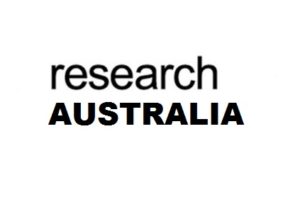Since the new “FATCA Rules”, OECD GUIDELINES and changes in the US internal revenue of service policies in relation to international taxation, several countries have started having a look at their own policies.
When times are uncertain everyone tries to secure what they have and prevent erosion of existing wealth , and that’s what many countries are trying to do right now.
Australia is now looking closer at tech company giants who are getting away with paying minimum tax in Australia as per media reports
Mr Turnbull told The Australian Financial Review he was consulting with chief executives of local media companies after the Australian division of global online search giant Google released accounts this month showing it paid only $74,176 in tax despite earning an estimated $1.1 billion in revenue in 2011.
The new cloud service delivery now being promoted by almost all big tech companies is only going to muddy the waters even more with transfer pricing and other tax issues relating to it, with many countries missing out in revenue.
So what is FATCA ?
After the FBAR (Foreign Bank Account Reporting)was released, the Foreign Account Tax Compliance Act (FATCA) introduces new, and largely parallel, reporting requirements. The FATCA reporting requirements carry their own set of penalties and are filed with the tax return rather than separately.
FATCA requires foreign financial institutions (FFI’s), to report information about accounts held by U.S. taxpayers directly to the IRS. This is a major compliance duty put on the Australian banks and borne by the Australian banks so that the US authorities can claim a piece of their pie. You can read more about FATCA here
The FATCA can impact on several AUSTRALIAN Banks ,Savings and Loan Associations ,Credit unions, Co-operative banking institutions and other financial institutions in australia
Transfer pricing to be scrutinised in australia
Cash-strapped governments around the world are targeting transfer pricing. Transfer pricing in short is defined as the practice in which companies send profits overseas to subsidiaries in low-tax countries
The ATO has found 68 of Australia’s top 100 corporations in 2008 had a subsidiary in a tax haven, low-tax jurisdiction or bank secrecy country as per this media report.
Even in India recently the Vodafone case was high on the media reports internationally as India looks to amend its tax laws after a defeat in this case resulting in a loss of millions of dollars to India
OECD AND ARMS LENGTH
This valuation principle is commonly applied to commercial and financial transactions between related companies. It says that transactions should be valued as if they had been carried out between unrelated parties, each acting in his own best interest.
The Transfer Pricing Guidelines for Multinational Enterprises and Tax Administrations (ISBN Number:978926409003) provide guidance on the application of the “arm’s length principle” for the valuation, for tax purposes, of cross-border transactions between associated enterprises. (OECD BOOKS ON transfer pricing)
The British tax office is also under pressure to investigate Apple after it emerged the US-based technology giant paid £10 million in British tax in 2010 while generating an estimated £6 billion in revenue and Online retailer Amazon is reported for recording about £8 billion in revenue in Britain over three years without paying tax.
Canada also has cracked down on multinationals that dodge tax through inflating profits or losses in dealings with their related companies overseas
Even with the deepening crisis in Europe , the EU are trying to impose carbon tax on International airlines using EU airports. The tax proposes to not only covers the flight through EU sky but through out the world. It is a scheme to impose ‘a sort of tax’ outside EU airspace which has got the ire of some other countries
LINKS:






